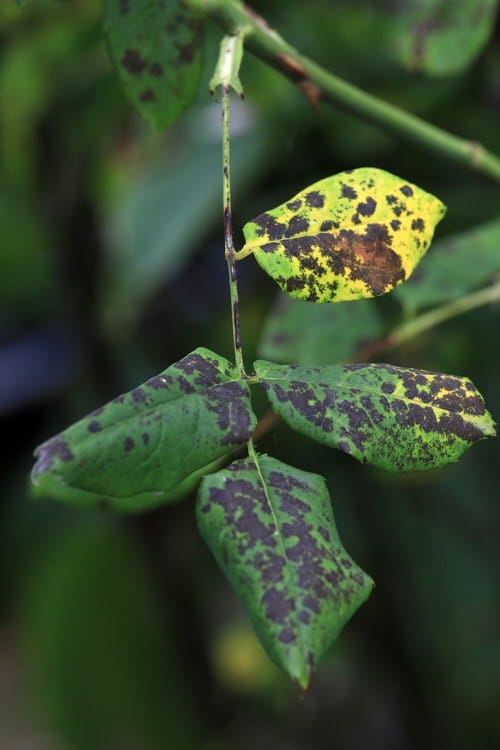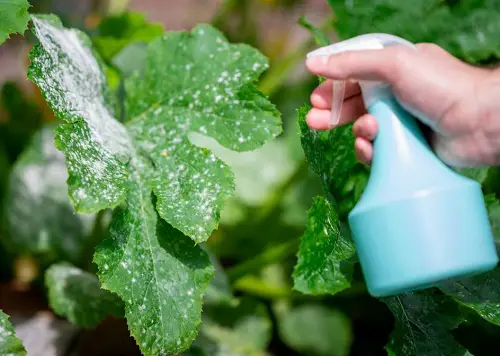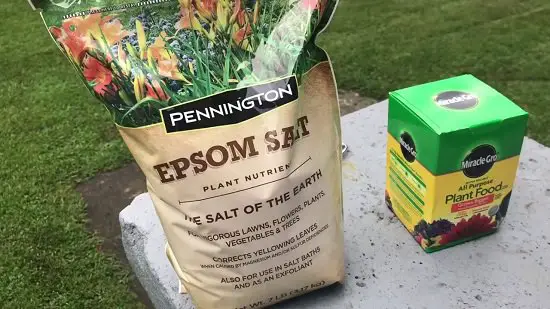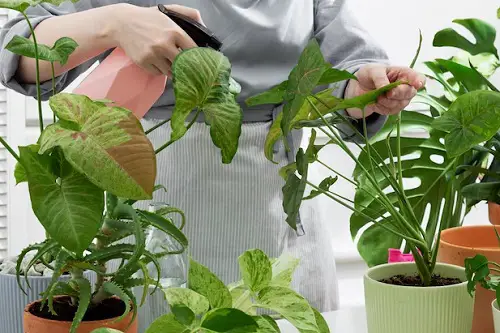Check out the best Epsom Salt Fungicide Recipe, as it is not just for fertilizing plants but can be used to eliminate plant disease.
This Epsom Salt Fungicide Recipe is all you need to keep the potential problems off your garden and houseplants!
Here are some amazing uses of Epsom Salt for houseplants
What is Epsom Salt?
Epsom salt is a naturally occurring mineral compound made up of magnesium, sulfur, and oxygen. It is named after the town of Epsom in Surrey, England, where it was first discovered.
Epsom salt has a variety of uses, including as a bath soak to soothe sore muscles, as a laxative to relieve constipation, and as a natural fertilizer and soil amendment for plants.
How Does Epsom Salt Work as a Fungicide?

Epsom salt works as a fungicide by increasing the magnesium content of the soil and plants.
Magnesium is an essential nutrient for plant growth and helps strengthen cell walls, which makes plants more resistant to fungal diseases. In addition, the sulfur content of Epsom salt helps to control fungal spores and prevent them from spreading.
Learn How to Use Epsom Salt for Ferns to Keep Them Lush & Green
How to Use Epsom Salt as a Fungicide?
1. Mix Epsom Salt with Water
To use Epsom salt as a fungicide, mix 1 tablespoon of Epsom salt with 1 gallon of water. Stir the mixture until the Epsom salt is completely dissolved.
2. Spray the Mixture on the Plants
Once the Epsom salt is dissolved, transfer the mixture to a spray bottle and spray it on the affected plants, covering both sides of the leaves. You can also use a watering can to apply the mixture directly to the soil around the plants.
3. Repeat as Needed
Repeat the Epsom salt spray application every two weeks or after heavy rainfall to prevent and control fungal diseases. Make sure to test the Epsom salt spray on a small area of the plant before spraying it to ensure that it does not cause any damage.
What Fungal Diseases Can Epsom Salt Control?
Epsom salt can help prevent and control a variety of fungal diseases, including:
- Powdery Mildew is a fungal disease that appears as a white or gray powdery coating on leaves, stems, and flowers.
- Black Spots can cause black spots to appear on the leaves of roses and other plants.
- Leaf Spots exhibit circular spots that appear on the leaves of plants.
- Rust is a fungal disease that appears as reddish-brown spots on the leaves of plants.
- Damping-off can cause seedlings to rot at the soil line.
Benefits of Using Epsom Salt as a Fungicide
Using Epsom salt as a fungicide has several benefits, including:
- It is a natural and non-toxic alternative to synthetic fungicides.
- Epsom salt is inexpensive and readily available at most garden centers and drugstores.
- It is easy to use and requires no special equipment or training.
- Epsom salt can help prevent and control various fungal diseases in plants.
Precautions When Using Epsom Salt as a Fungicide
While Epsom salt is generally safe to use as a fungicide, it is important to take some precautions to avoid any negative effects on your plants:
- Do not apply Epsom salt in excess, as it can cause magnesium and sulfur toxicity in plants.
- Test the Epsom salt spray on a small area of the plant before spraying the entire plant to ensure that it does not cause any damage.
- Never spray Epsom salt on hot, sunny days, as it can cause leaf scorching.
- Avoid spraying Epsom salt on plants that are already stressed or damaged, as it can further weaken them.
Discover Epsom Salt Uses In Garden
Conclusion
Epsom salt is a natural and effective way to prevent and control fungal diseases in your garden. Increasing the magnesium content of the soil and plants helps strengthen plant cells and prevent fungal spores from spreading.
Remember to follow the proper application and precautionary measures to ensure that your plants stay healthy and fungus-free. With regular use, Epsom salt can help keep your plants looking their best and protect them from fungal diseases.




